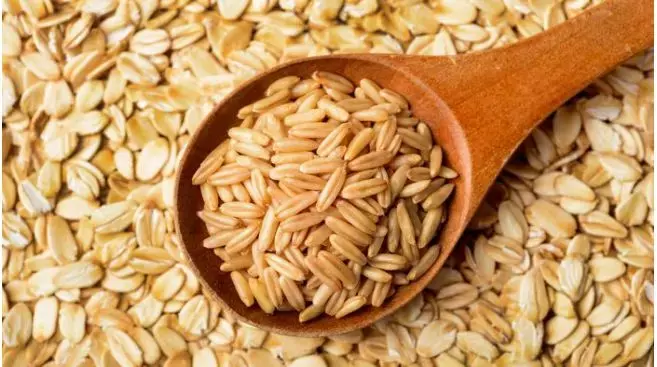- Home
- Medical news & Guidelines
- Anesthesiology
- Cardiology and CTVS
- Critical Care
- Dentistry
- Dermatology
- Diabetes and Endocrinology
- ENT
- Gastroenterology
- Medicine
- Nephrology
- Neurology
- Obstretics-Gynaecology
- Oncology
- Ophthalmology
- Orthopaedics
- Pediatrics-Neonatology
- Psychiatry
- Pulmonology
- Radiology
- Surgery
- Urology
- Laboratory Medicine
- Diet
- Nursing
- Paramedical
- Physiotherapy
- Health news
- Fact Check
- Bone Health Fact Check
- Brain Health Fact Check
- Cancer Related Fact Check
- Child Care Fact Check
- Dental and oral health fact check
- Diabetes and metabolic health fact check
- Diet and Nutrition Fact Check
- Eye and ENT Care Fact Check
- Fitness fact check
- Gut health fact check
- Heart health fact check
- Kidney health fact check
- Medical education fact check
- Men's health fact check
- Respiratory fact check
- Skin and hair care fact check
- Vaccine and Immunization fact check
- Women's health fact check
- AYUSH
- State News
- Andaman and Nicobar Islands
- Andhra Pradesh
- Arunachal Pradesh
- Assam
- Bihar
- Chandigarh
- Chattisgarh
- Dadra and Nagar Haveli
- Daman and Diu
- Delhi
- Goa
- Gujarat
- Haryana
- Himachal Pradesh
- Jammu & Kashmir
- Jharkhand
- Karnataka
- Kerala
- Ladakh
- Lakshadweep
- Madhya Pradesh
- Maharashtra
- Manipur
- Meghalaya
- Mizoram
- Nagaland
- Odisha
- Puducherry
- Punjab
- Rajasthan
- Sikkim
- Tamil Nadu
- Telangana
- Tripura
- Uttar Pradesh
- Uttrakhand
- West Bengal
- Medical Education
- Industry
Whole grains beneficial for cholesterol control, finds study

Consuming whole grains as opposed to refined grains can improve total cholesterol, low-density lipoprotein cholesterol, hemoglobin A1c, and C-reactive protein, adults with or without CVD risk factors,suggests a new study. The study findings have recently been published in Journal Of The Academy Of Nutrition And Dietetics.
Whole grains are a category of cereal foods in which the grain is intact or the constituents are present in proportions that represent the intact grain. The consumption of whole grains as opposed to refined grains, which contain the endosperm starch primarily, is recommended in dietary guidelines internationally1,6,7 due to the strong nutritional profile of the bran and germ, which contain protein, dietary fiber, magnesium, potassium, selenium, zinc, iron, iodine, folate, niacin, and vitamin E.8 Whole grains are also an important source of phytochemicals and antioxidants, such as phenols, flavonoids, zeaxanthin, lutein, and b-cryptoxanthin, and provide additional health benefits, such as reduced risk of CVD, type 2 diabetes, and some cancers, beyond the consumption of essential nutrients.
Observational data have established a link between the consumption of whole grains and reduced risk of cardiovascular disease (CVD); however, there is a need to review interventional research .
To bridge this gap, researchers undertook to determine whether interventions providing whole grain or whole pseudo-grain for dietary consumption improved CVD-related outcomes compared with refined grain or placebo in adults with or without chronic disease and/ or associated risk factors.
They designed a systematic review and meta-analysis of randomized controlled trials that compared whole-grain vs refined-grain or placebo consumption by human adults was conducted. PubMed, CINAHL, Embase, Web of Science, and Cochrane CENTRAL were searched for studies of 12 weeks (or 2 weeks for inflammatory outcomes) duration until 21 February 2020. Data were extracted for 14 types of CVD risk factors (40 outcomes in total).
On data analysis, the following facts emerged.
- Twenty-five randomized controlled trials were included and 22 were metaanalyzed. Interventions ranged from 2 to 16 weeks; most samples were healthy (n ¼ 13 studies) and used mixed whole grains (n ¼ 11 studies).
- Meta-analysis found that whole-grain oats improved total cholesterol (standardized mean difference [SMD] ¼ e0.54, 95% CI e0.95 to e0.12) and low-density lipoprotein cholesterol (SMD ¼ e0.57, 95% CI e0.84 to e0.31), whole-grain rice improved triglycerides (SMD ¼ 0.22, 95% CI e0.44 to e0.01), and whole grains (all types) improved hemoglobin A1c (SMD ¼ e0.33, 95% CI e0.61 to e0.04) and C-reactive protein.
"Further interventional research is needed to better understand the preventive and treatment potential of wholegrain and whole pseudo-grain dietary intake for CVD, particularly among those with existing CVD risk factors."wrote the team.
· For full article follow the link: 10.1016/j.jand.2020.06.021
Primary source: Journal Of The Academy Of Nutrition And Dietetics.
Dr Satabdi Saha (BDS, MDS) is a practicing pediatric dentist with a keen interest in new medical researches and updates. She has completed her BDS from North Bengal Dental College ,Darjeeling. Then she went on to secure an ALL INDIA NEET PG rank and completed her MDS from the first dental college in the country – Dr R. Ahmed Dental College and Hospital. She is currently attached to The Marwari Relief Society Hospital as a consultant along with private practice of 2 years. She has published scientific papers in national and international journals. Her strong passion of sharing knowledge with the medical fraternity has motivated her to be a part of Medical Dialogues.
Dr Kamal Kant Kohli-MBBS, DTCD- a chest specialist with more than 30 years of practice and a flair for writing clinical articles, Dr Kamal Kant Kohli joined Medical Dialogues as a Chief Editor of Medical News. Besides writing articles, as an editor, he proofreads and verifies all the medical content published on Medical Dialogues including those coming from journals, studies,medical conferences,guidelines etc. Email: drkohli@medicaldialogues.in. Contact no. 011-43720751


